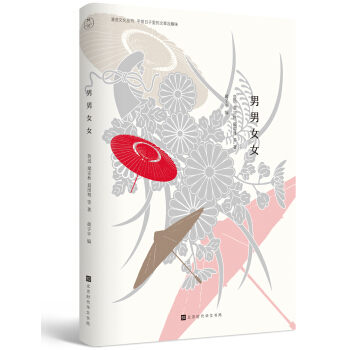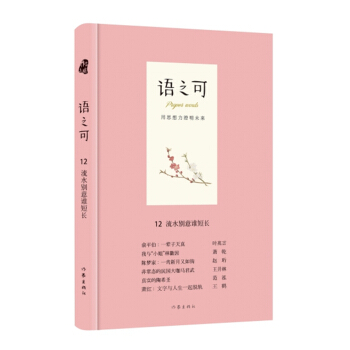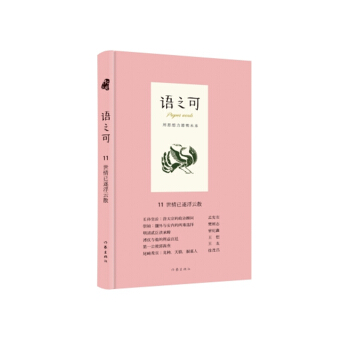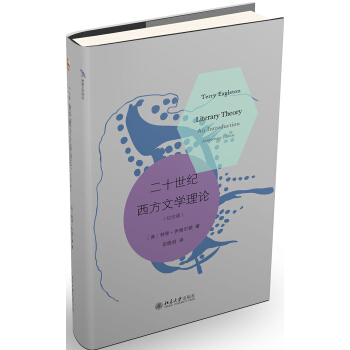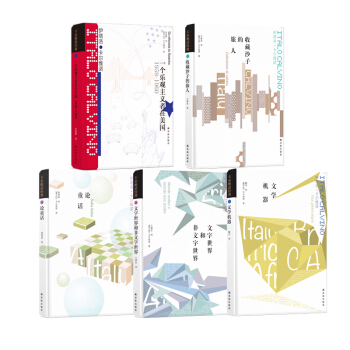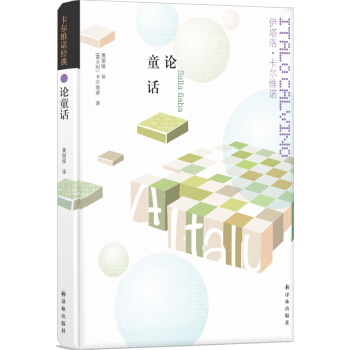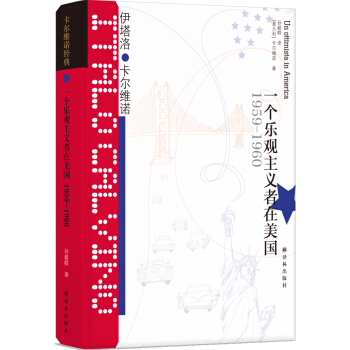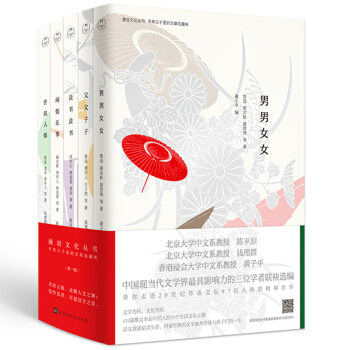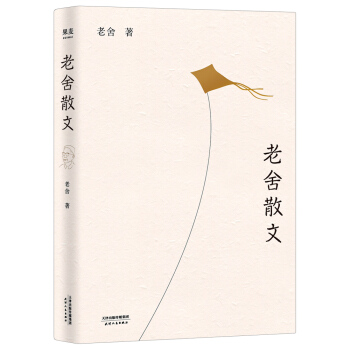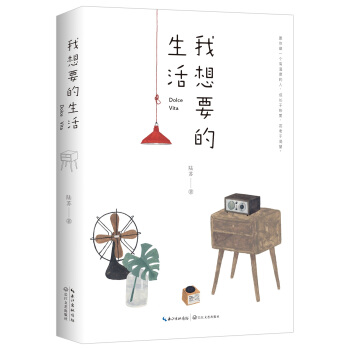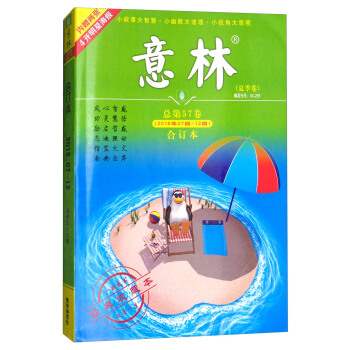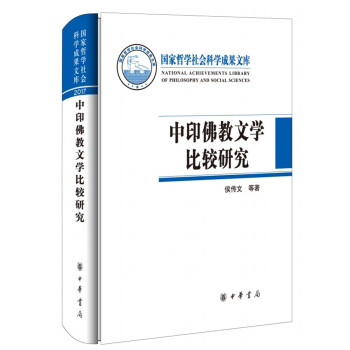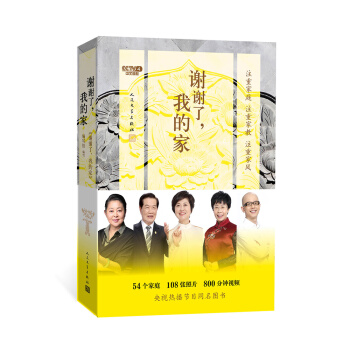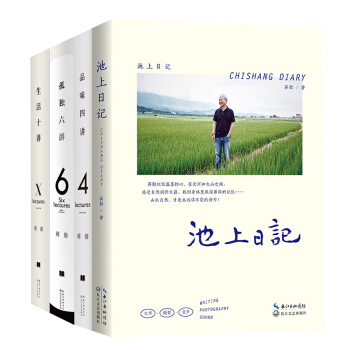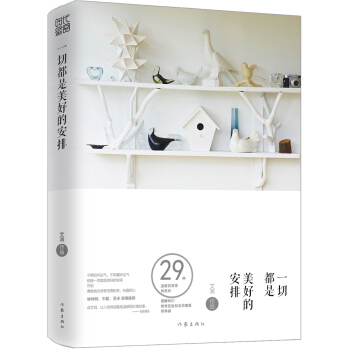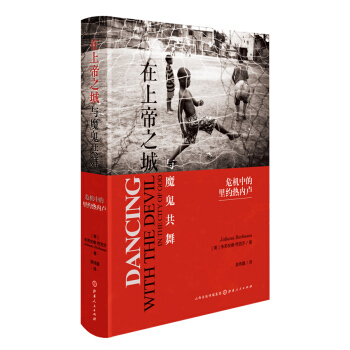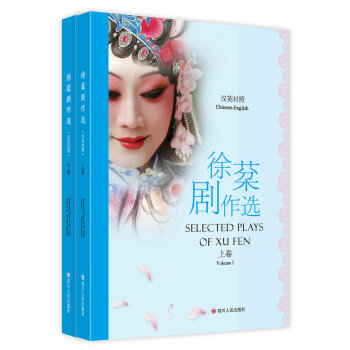

具体描述
编辑推荐
适读人群 :戏剧爱好者《徐棻戏剧选(上下卷)(汉英对照)》是著名剧作家徐棻的经典名作。本书有两大特点。第1个特点是文本汉英对照,便于外国人了解川剧,进而了解中国文化;第二个是翻译者由美国人白灵芝(Liza Bielby)领衔,她曾在四川省川剧学校专修川剧表演,现仍从事戏剧表演行业,因而本书译文不仅地道,还适合舞台表演。可以作为戏剧进学校的备选。
内容简介
《徐棻戏剧选(上下卷)(汉英对照)》选收了知名剧作家徐棻的八个川剧剧本《死水微澜》《庄子与田氏》《欲海狂潮》《马前泼水》《目连之母》《尘埃落定》《马克白夫人》《红梅记》,采用汉英对照的方式出版,对扩大川剧的影响,对四川地方戏剧——川剧的走出去,都有一定的积极意义。
作者简介
作者:徐棻,国家一级编剧,终身享有国务院政府特殊津贴。曾任四川省政协常委,四川省文联副主席、四川省剧协副主席。有多部剧作问世,曾3次荣获“曹禺戏剧文学奖”,两次荣获“文华大奖”及“五个一工程奖”,三次获得中国戏剧节的“优秀剧目奖”等。
译者:(美)白灵芝,美国欣特兰实验戏剧团艺术总监,美学硕士,曾到四川省川剧学校研习多年,参与和负责了许多翻译、合作创作和推广川剧的项目。金学勤,四川大学英语教授。朱江芹,四川大学翻译硕士,目前在电子科技大学格拉斯哥学院任教。张羽军,先就读于清华大学英语系,因院系调整而毕业于北京大学。供职于四川人民艺术剧院,从事戏剧评论及翻译国外戏剧。
内页插图
目录
目 录
CONTENTS
上 卷
Volume 1
川剧简介 002
A Brief Introduction to Sichuan Opera 003
死水微澜 010
Ripples in the Stagnant Water 011
欲海狂潮 082
Raging Waves in the Sea of Desire 083
目连之母 142
Mulian’s Mother 143
尘埃落定 208
Red Poppies 209
下 卷
Volume 2
庄子与田氏 002
Zhuangzi and Tianshi 003
马克白夫人 072
Lady Macbeth 073
马前泼水 088
Spilling Water in Front of the Horse 089
红梅记 160
The Story Under the Plum Blossom Tree 161
徐棻戏剧出版物一览 220
Overview of Xufen.s Published Dramas 221
前言/序言
川剧简介
一、川剧和中国戏曲
川剧,是中国戏曲的一种。戏曲,是唯有中国才有的一种戏剧样式。戏曲成型于元代,1240年就被称作“戏曲”,至今已有七百多年。
中国地域宽广。因地方语言和民间音乐的差异,先先后后形成了三百六十多种“地方戏曲”。这些地方戏曲用自己所在的地名命名,比如,北京的戏曲叫“京剧”,四川的戏曲叫“川剧”。川剧是戏曲中的古老剧种,已有二百八十多年历史。
虽然语言和音乐不同,但各个地方戏曲都是由剧本文学、声乐与器乐、说唱艺术和舞蹈、美术、武术、杂技等综合而成。这种高度的综合性构成了中国戏曲的艺术特点。各个地方戏曲都是在这种艺术特点中,去展现其不同的地域个性。
由于戏曲中音乐的分量很重,西方人便用“歌剧”这个词语来称呼“戏曲”。把京剧叫作“北京歌剧”,把川剧叫作“四川歌剧”。其实,“中国戏曲”和“西方歌剧”是两种完全不同的艺术。
A Brief Introduction to Sichuan Opera
1. Sichuan Opera and Chinese Opera
Sichuan Opera (chuanju) is a type of Chinese Opera (xiqu), a style of theatrical performance unique to China. Chinese Opera was formed in the Yuan Dynasty; in 1240 these “melodic (qu) plays (xi)” were first designated, giving the form a history of over 700 years.
China’s territory is vast. Because of the differences in regional dialect and folk music styles, over 360 different kinds of “regional Chinese Operas” (difang xi) have formed. These regional Chinese Opera styles are named after their place of origin; for example, Beijing’s Chinese Opera style is called “Beijing Opera” ( jingju), Sichuan’s Chinese Opera is called “Sichuan Opera” (chuanju). Sichuan Opera is one of Chinese Opera’s ancient forms, with over 280 years of history.
Despite differences in dialect and music, each of the regional Chinese Opera forms is a composite art form, similarly consisting of dramatic literature, orchestra and percussion, vocal work and dance, aesthetics, martial arts, acrobatics and more. This high degree of comprehensiveness is one of the Chinese Opera art form’s special characteristics. On the foundation of this key characteristic, each regional Chinese Opera form has developed its own geographic personality.
Because of the importance of music in Chinese Opera, Westerners have used the term “opera” (in Chinese: geju, ge –musical, ju –theatre) to translate “Chinese Opera” (in Chinese: xiqu, xi – plays, qu – melodic), making “jingju”( jing from “Beijing,” ju – theatre) into Beijing Opera and chuanju (chuan from “Sichuan,” again, ju – theatre) into Sichuan Opera. However, what is called “Chinese Opera” and what is understood by “Western Opera” are two different art forms.
中国戏曲是一种高度综合的民族艺术。唱、念、做、打、舞在演员身上的有机构成,是戏曲综合性最集中、最突出的体现。唱,指演唱;念,指朗诵和对话;做,指形体和表情;打,指打仗、格斗等动作;舞,指表现人物情绪或戏剧场面的舞蹈。戏曲以唱、念、做、打、舞的综合表演为手段,呈现为一种形式感极强的戏剧。川剧也是这样一种形式感极强的戏剧。
二、戏曲(川剧)的虚拟性、程式性、写意性
戏曲舞台是一个基本不用布景装置的舞台。戏剧环境的确立,是以人物的活动为依据。人物上场表演了,舞台上就有了戏剧环境;人物下场之后,舞台就是一个抽象的空间。比如,一个人上场,说自己进城了,那么舞台上就是城市。然后他说要出城过河,这时他从舞台一边走到舞台另一边,那么舞台上的环境就从城里变成了河边。这时,有个船夫划着桨上场了,那么舞台上的环境就是河边来了一条小船。这人做一个跳上船的动作,船夫再用形体动作表示划船,那么舞台上的环境就是一条船行驶在河流中。从以上的描述可以看出,戏曲艺术的重要特征是非物质的虚拟性。它通过演员的动作和台词,来表现舞台上的时间和空间,以及舞台时空的转换。川剧和所有的
Chinese Opera is a kind of highly composite folk art. Through the organic composition (via actor’s body) of “singing” (chang), “reading” (nian), “doing” (zuo), “fighting” (da), and “dance” (wu), Chinese Opera’s composite nature is most comprehensively and prominently reflected. “Singing” refers to the actor’s singing; “reading” refers to recitation; “doing” refers to physicality and expression; “fighting” refers to battle and combat actions; “dance” refers to performance of a character’s emotions or dance within the drama’s scenes. Through a combination of the means “singing, reading, doing, fighting, and dance,” Chinese Opera is presented as a strongly form-based drama; thus, Sichuan Opera should also be considered a strongly form-based drama.
2. Chinese Opera (and Sichuan Opera/chuanju) and its mime, codification, and “freehand” aesthetic
The Chinese Opera stage is one that for the most part does not use scenic backgrounds. The establishment of the theatrical environment is done through the activities of the characters. When the characters are on stage performing, the stage will have a scenic environment; after the characters exit the stage, the stage is simply an abstract space. For example, a person enters the stage, says he is coming into the city; thus, the city is on the stage. Afterwards, he says he wants to leave the city and cross a river. At this point, he moves from one side of the stage to the other; now the environment onstage has changed to a riverside. At this point, a boatman rowing an oar enters; now the environment onstage is a riverside where a small boat has arrived. The man makes a jumping motion as if jumping on to the boat, and the boat man begins to use movements indicating rowing again; now the environment onstage is that of a boat moving down a flowing river. From the above description you can see one of the most important features of Chinese Opera is its non -material based mime. Through the performer.s movements and text, the time and space of the stage is expressed, as well as the transformation of said time and space. Sichuan Opera and all other regional Chinese Opera forms all use this
地方戏曲一样,都是这种演出方式。最近几十年,戏曲舞台开始有了布景装置。但这些布景装置,都力求不影响演员表演的虚拟性。
虚拟性的戏曲表演动作,当然与生活中的动作不同。比如前面说的走路、上船、划船等动作,都必须合乎戏曲的程式。程式,就是把生活中的动作提炼、概括、美化而形成比较夸张的、有舞蹈意味的规范。戏曲演员在舞台上表演关门、上楼、开窗、骑马、划船、走路、打仗、行军等生活动作,包括每个人物的一举一动、一颦一笑,都有固定的程式。这些程式是戏曲演员必须遵守的表演法则,是戏曲演员的基本功,就像芭蕾舞的脚尖、托举和跳跃一样,每个戏曲演员都要接受严格的基本功训练。没有程式的基本功,演员无法表演戏曲。程式基本功的好坏,决定戏曲演员的艺术水平。
戏曲表演的程式虽然是固定的、规范的,但也要与生活的真实感相结合。比如,在划船的程式动作中,船是虚的,但桨是实在的。在骑马的程式动作中,马是虚的,但马鞭是实在的;演员划船、挥鞭或者在船上、在马背上的状态,都必须符合戏曲的程式,同时也必须符合人们的生活感受。程式动作通过演员的形体和表情体现,这种体现就叫“身段”。
戏曲有“三五步行遍天下”的说法。当戏曲中的人物用台词说明他要去的地方,同时从舞台的一侧走到另一侧时,他就已经到了目的地。不管他走
kind of performance style. In recent decades, Chinese Opera stages have begun to use scenic elements. However, these scenic elements all strive to not affect the performer’s mimed performance.
Mimed actions within Chinese Opera performance of course are different from everyday actions. For example, in the description above, the actions of walking, boarding the boat, rowing, etc., all must adhere to the codification of Chinese Opera. Codification, then, is the process of taking everyday actions and refining them, generalizing them, aestheticizing as well as forming them to have a more exaggerated, dancelike specification. Chinese Opera performers, when performing daily actions on stage such as closing a door, ascending a staircase, opening a window, riding a horse, rowing a boat, walking, fighting, marching – every move of a character, their every facial expression – all use a fixed codification for said actions. This codification is a performance rule every Chinese Opera artist must obey; it is the “basic skill set” of a Chinese Opera performer, just as a ballet dancer must have strong toes, good lift, and solid jumps, and every performer must receive strict “basic skill set” training. Those performers without this “basic skill set” cannot perform Chinese Opera. Whether one.s “basic skill set” is strong or weak will determine a Chinese Opera performer.s artistic quality.
Although the codification of Chinese Opera performance is fixed and standardized, it does want to be combined with everyday realism. For example, as one is performing the codified action of rowing a boat, the boat is mimed but the oar is real. When performing the codified action of riding a horse, the horse is mimed but the horsewhip is real; the attitude of the performer rowing the boat or whipping the whip, atop the boat or on horseback must adhere to the codification of Chinese Opera but at the same time must also adhere to one.s feelings in everyday life. Through the actor.s body and facial expression, codified actions come to be called
“physicality” (shenduan).
Chinese Opera has an expression that reads “three steps, five steps to walk all across the world.” When a character in a Chinese Opera piece uses text to indicate that he is going somewhere, and at the same time moves from one side of the stage
用户评价
刚拿到《徐棻剧作选》这本书,虽然还没来得及沉浸其中,但它已经在我脑海中勾勒出了一幅幅斑斓的图景。我对戏剧创作的理解,总是带着一种近乎虔诚的敬畏,因为它需要在有限的空间和时间内,将人生的悲欢离合、社会的百态变迁,以一种高度凝练而又富有张力的方式呈现出来。 我默默地在想,徐棻先生的作品,会是怎样的风格?是那种古朴典雅,仿佛带着历史的回响,讲述着旧时光里的故事?还是那种锐利前卫,直指当下社会痛点的尖锐剖析?我脑海中开始闪现各种戏剧场景的画面,或许是舞台上灯光闪烁,演员们声情并茂地演绎着各自的命运;又或许是在某个安静的书房里,我一个人对着剧本,细细地品味着其中的韵味。我期待着,这本书能够像一位资深的向导,带领我穿越时空的隧道,去领略不同时代的人物风采,去感受不同情感的冲击,去思考那些永恒不变的人类议题。
评分我最近淘到了一本《徐棻剧作选》,还没来得及深入翻阅,但它的存在本身就足以让我的心绪泛起涟漪。作为一名对戏剧艺术怀揣着浓厚兴趣的读者,我总认为,一本好的剧作选,就像是一份珍贵的宝藏地图,引领读者去探索作者内心深处的情感宇宙和思想大陆。 我猜想,徐棻先生在创作这些剧作时,一定倾注了无数的心血与情感。或许,他是在静谧的夜晚,伴着窗外的月光,将一个个生动的人物和跌宕起伏的故事情节,一一呈现在纸页之上。我期待着,在未来的阅读中,能够感受到那些文字间流淌出的深沉情感,那些细腻入微的人物刻画,以及那些引人深思的戏剧冲突。我很好奇,徐棻先生的作品,究竟是会让我捧腹大笑,还是会让我潸然泪下,亦或是让我陷入长时间的沉思。这本书,对我而言,不仅是一本读物,更像是一个邀约,邀请我去体验一场精神的盛宴,去感受艺术的魅力,去发现更多关于生活、关于人性、关于情感的真谛。
评分一直以来,我对那些能够触及人心最柔软角落的故事深怀敬意,尤其是戏剧,它那独特的艺术形式,总能将人生的百态以最直观、最强烈的方式呈现出来。最近偶然得知《徐棻剧作选》的问世,便迫不及待地想要一探究竟。虽然我尚未深入阅读,但单是“剧作选”这三个字,就足以引发我无限的遐想。我设想着,这本选集里收录的,定是经过了作者精心打磨、饱含深情与智慧的篇章。 我想象着,每一部剧作都可能是一扇通往不同世界的窗户,透过它,我或许能看到人性的复杂多面,体验到社会变迁的无情与温情,甚至窥见那些难以言说的情感纠葛。我猜测,徐棻先生的笔下,定然不乏令人拍案叫绝的妙语,也定然隐藏着值得反复咀嚼的哲思。我期待着,能够在这部作品中,找到能够引起我共鸣的角色,能够被他们的命运所牵引,能够在他们的悲欢离合中,看到自己的影子,或者,看到我从未经历过的另一种人生。这种对未知的期待,让我对即将展开的阅读之旅充满了好奇与渴望。
评分最近刚入手一本《徐棻剧作选》,还没来得及细细品读,但光是翻阅目录和作者简介,就已勾起了我浓厚的兴趣。徐棻这个名字,在戏剧界不算陌生,但具体的作品集却是第一次接触。我一直认为,剧本不只是文字的堆砌,更是情感、思想和想象力的载体,是能够在舞台上焕发生命的灵魂。所以,在真正走进剧本的世界之前,我总是习惯性地去预设和想象。 这部选集,从书名来看,就充满了“精选”的意味,想必是作者多年创作生涯中的精华之作。我很好奇,徐棻先生的剧作风格究竟是怎样的?是偏向于现实主义的深刻剖析,还是浪漫主义的诗意抒情?是擅长刻画人物内心世界的细腻波澜,还是侧重于宏大叙事的史诗篇章?从扉页的印刷质量和纸张触感上,就能感受到出版方对这部作品的重视,这也让我对内容更加期待。我脑海中已经开始浮现出一些模糊的画面,或许是古老庭院里的爱恨情仇,又或许是现代都市里的迷茫与挣扎。我期待着,在翻开书页的那一刻,能够被带入一个全新的时空,遇见那些鲜活而独特的人物,感受那些跌宕起伏的命运。
评分手中这本《徐棻剧作选》,虽尚未开启它的扉页,但它所带来的期待感,已经足以让我思绪万千。我对戏剧的迷恋,源于它那独特的魅力——它是一种将文字、表演、视觉、听觉融为一体的综合艺术,能够以最直接的方式触动人的灵魂。 我常常在想,是什么样的经历,什么样的感悟,才能够让一位剧作家倾注心血,创造出一部部引人入胜的剧本?我猜测,徐棻先生的笔下,定然饱含着他对生活深刻的观察,对人性细腻的洞察,以及对社会百态独到的见解。我期待着,在这本选集中,能够遇见那些让我难忘的角色,他们或许是鲜活而真实,他们的喜怒哀乐,他们的爱恨情仇,都将深深地烙印在我的心中。我也期待着,通过阅读这些剧作,能够拓展我的视野,能够以更广阔的视角去看待这个世界,去理解那些复杂的人际关系,去感受那些隐藏在平淡生活下的波澜壮阔。这本书,对我来说,不仅仅是一部文学作品,更是一个精神世界的入口,等待我去探索和发现。
相关图书
本站所有内容均为互联网搜索引擎提供的公开搜索信息,本站不存储任何数据与内容,任何内容与数据均与本站无关,如有需要请联系相关搜索引擎包括但不限于百度,google,bing,sogou 等
© 2026 book.tinynews.org All Rights Reserved. 静思书屋 版权所有



